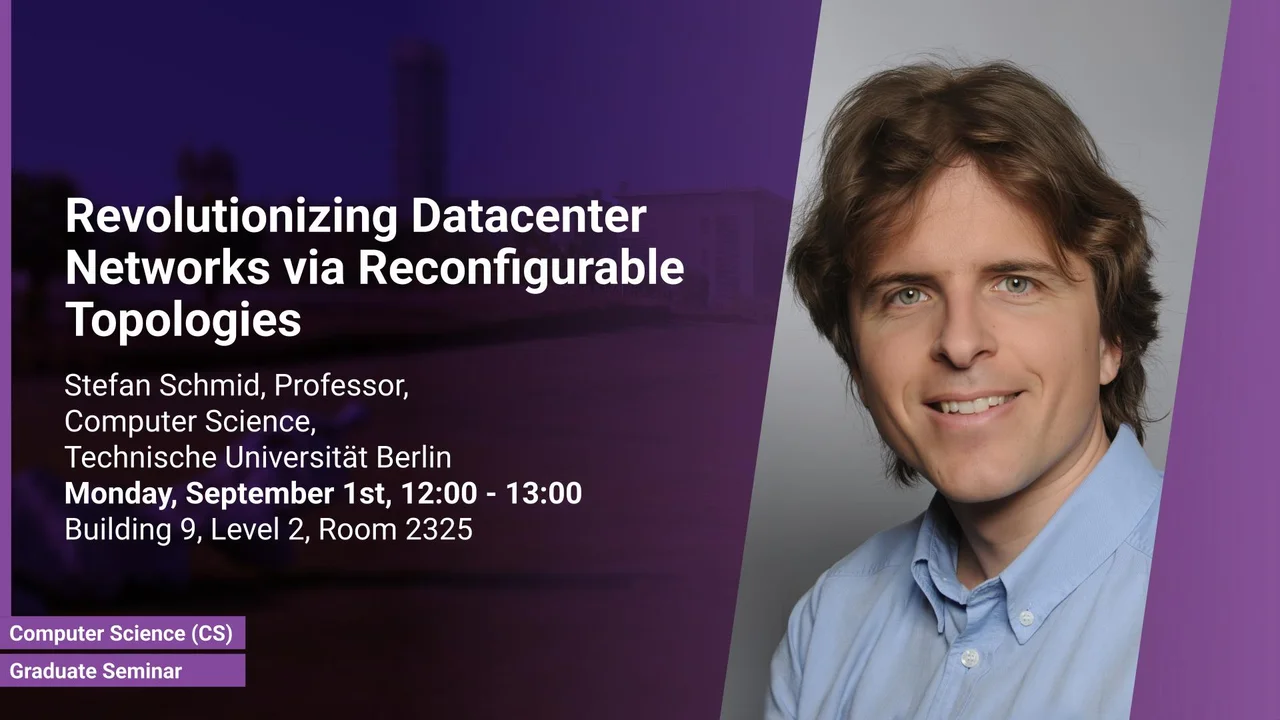
Revolutionizing Datacenter Networks via Reconfigurable Topologies
This talk presents an overview of reconfigurable datacenter networks. In particular, we discuss the motivation for such reconfigurable architectures, review the technological enablers, and present a taxonomy that classifies the design space into two dimensions: static vs. dynamic and demand-oblivious vs. demand-aware.
Overview
With the popularity of cloud computing and data-intensive applications such as machine learning, datacenter networks have become a critical infrastructure for our digital society. Given the explosive growth of datacenter traffic and the slowdown of Moore’s law, significant efforts have been made to improve datacenter network performance over the last decade. A particularly innovative solution is reconfigurable datacenter networks (RDCNs): datacenter networks whose topologies dynamically change over time, in either a demand-oblivious or a demand-aware manner. Such dynamic topologies are enabled by recent optical switching technologies and stand in stark contrast to state-of-the-art datacenter network topologies, which are fixed and oblivious to the actual traffic demand. In particular, reconfigurable demand-aware and “self-adjusting” datacenter networks are motivated empirically by the significant spatial and temporal structures observed in datacenter communication traffic. This talk presents an overview of reconfigurable datacenter networks. In particular, we discuss the motivation for such reconfigurable architectures, review the technological enablers, and present a taxonomy that classifies the design space into two dimensions: static vs. dynamic and demand-oblivious vs. demand-aware. We further present a formal model and discuss related research challenges.
This talk is based on our recent Communications of the ACM article, which also includes video interviews with three leading experts, Manya Ghobadi, Amin Vahdat, and George Papen, who share their perspectives on reconfigurable datacenter networks.
Presenters
Stefan Schmid, Professor, Computer Science, Technische Universität Berlin
Brief Biography
Stefan Schmid is a Professor at the Technical University of Berlin, Germany. MSc and PhD at ETH Zurich, Postdoc at TU Munich and University of Paderborn, Senior Research Scientist at T-Labs in Berlin, Associate Professor at Aalborg University, Denmark, Full Professor at the University of Vienna, Austria, and Sabbathical as a Fellow at the Israel Institute for Advanced Studies (IIAS), Israel. Stefan Schmid received the IEEE Communications Society ITC Early Career Award 2016 and an ERC Consolidator Grant 2019.